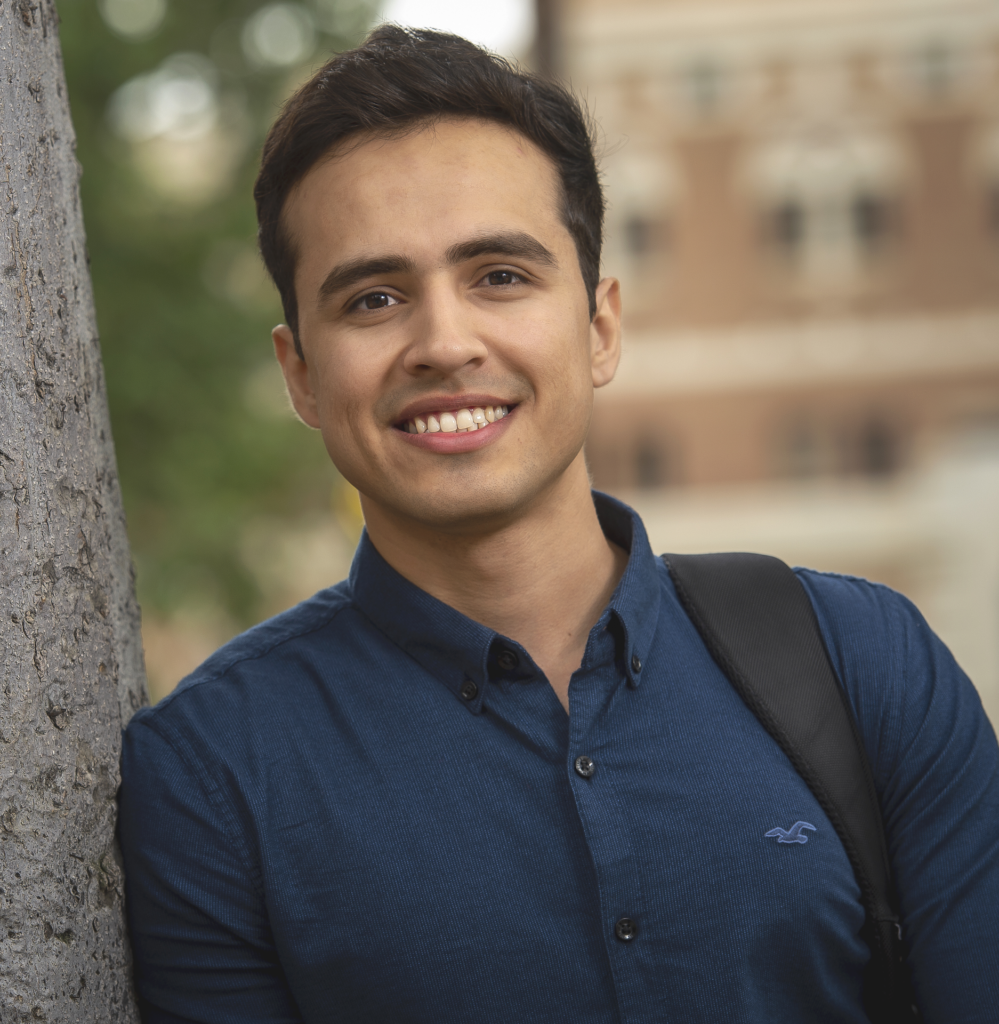Cooke Scholar provides critical help to refugees from home country of Afghanistan

When Omar Azizi enrolled for his first courses at MiraCosta College, it was his first time in formal schooling. Growing up as an Afghan refugee in Pakistan, he wasn’t allowed to go to school as a kid.
“There was a time that my family was being persecuted for the work that my mom was doing, empowering women to get an education, and we had to escape overnight,” Omar says. “Eventually we were one of the lucky 1% who made it into the U.S.”
His family was granted asylum in the U.S. when he was 20 years old, and he enrolled in community college at MiraCosta after taking ESL courses and learning the necessary material to pass placement exams. When he was chosen as a Cooke Transfer Scholar in 2017, he transferred to University of Southern California and majored in business administration.
“The Cooke Community, my Cookie cousins, they always are there,” Omar says. “When I had my moments of doubt, they would check on me, they would talk to me. They are the people that for the first time, [showed me] imposter syndrome does exist, that I’m not different than the people at the top, that I should have faith.”
During his time at USC, he founded and designed SAFAR – an information aggregation app that helps refugees, NGOs, and refugee camp managers access important resources and communicate with each other. In 2020, the Cooke Foundation recognized Omar’s work with SAFAR by granting him the $5,000 Undergraduate Scholar Award in Honor of Dennis I. Belcher.
SAFAR launched in Greece at the end of 2019, specifically on the island of Lesbos where a large refugee camp is located. The work is currently paused, since Greece has since enacted restrictions toward organizations trying to aid in the refugee crisis, making it difficult for SAFAR to achieve any mobility. But Omar has pivoted since the Taliban took over Afghanistan in August, and now spends much of his time helping refugees through Oasis Rescue, a nonprofit for which he serves on the Board of Directors.
“Our primary focus is to help high-risk women and their families evacuate and escape,” Omar says. “That’s what we’ve been absolutely busy with as things have evolved, since day one of the Taliban takeover.”
Omar and his team members at Oasis Rescue have been focusing on helping persecuted women escape danger by communicating with U.S. organizations that could help them get to the airport. Since the U.S. military left Afghanistan, the task has become finding diplomatic solutions with Afghan officials to try to aid refugees across the border into neighboring countries – a grueling journey that is all too familiar for Omar.
“I know what it’s like to be held at gunpoint by the Taliban. I remember when they pointed their AK-47 toward me and my Dad when I was a kid. I know what it’s like to cross the mountainous border of Pakistan to escape,” Omar says. “I know what it’s like from both sides of the spectrum – what it’s like to be in the U.S. now, looking back and being at a place where you feel helpless while you have so many resources.”
One thing that Omar says unites other refugees is the feeling of pain that they share with each other. He says that in the diaspora, there are some people like himself who have lived the struggle of leaving their homelands and some that have inherited that burden from their families or watching the news. But all the trauma that political turmoil brings with it also brings him closer together with other Afghans and refugees, and makes him feel empowered to do something about it.
“Part of the reason that I can empathize on a different level is that I am from there,” Omar says. “Kabul is my hometown, and I have a lived experience of what it’s like to be a refugee, what it’s like to be persecuted. I’ve been them, I am them. They are my people.”
Learn how you can help Oasis Rescue’s mission here.